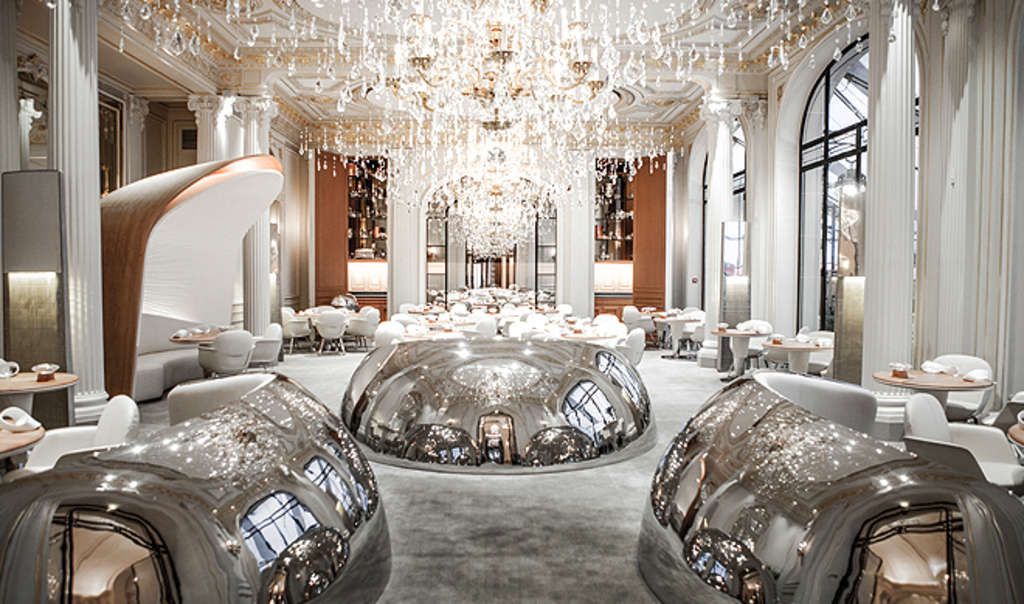This article aims to explore the art of luxury hospitality and share the secrets of successful hotels. The hospitality industry is highly competitive, and luxury hotels are constantly striving to create memorable experiences for their guests. Through this article, we will examine the strategies and techniques that leading hotels employ to provide exceptional service and exceed guest expectations.
The hospitality industry is all about creating unforgettable experiences for guests. Luxury hotels, in particular, have to go above and beyond to provide guests with a sense of exclusivity, personalized service, and indulgence.
Successful luxury hotels understand that hospitality is an art that requires a combination of skill, creativity, and attention to detail. In this article, we will delve into the world of luxury hospitality, explore the secrets of successful hotels, and provide insights into the strategies and techniques that leading hotels employ to create exceptional guest experiences.
The Importance of Personalization:

One of the key elements of luxury hospitality is personalization. Successful hotels understand that every guest is unique, and therefore, tailor their experiences to meet individual preferences. Personalization can include everything from room preferences to dining preferences, and even the type of music played in the room.
Leading hotels invest heavily in technology and systems that allow them to collect and analyze guest data, providing insights into their preferences and needs. By providing personalized experiences, hotels can create a sense of exclusivity and make guests feel valued.
The Power of Design:
Design plays a crucial role in luxury hospitality. Successful hotels understand the importance of creating visually stunning spaces that evoke a sense of luxury and sophistication.
From the lobby to the guest rooms, every aspect of the hotel’s design must be carefully curated to create a cohesive and memorable experience. Leading hotels often work with renowned designers and architects to create unique spaces that set them apart from their competitors.
The Role of Technology:
Technology is rapidly transforming the hospitality industry, and successful hotels are leveraging their power to provide exceptional service.
Leading hotels use technology to streamline check-in and check-out processes, offer virtual concierge services, and provide guests with access to a range of digital amenities.
From mobile check-ins to in-room tablets, technology is changing the way guests interact with hotels, and successful hotels are staying ahead of the curve by investing in cutting-edge technologies.
The Art of Service:
Service is at the heart of luxury hospitality, and successful hotels understand that service is an art that requires a combination of skill, training, and empathy.
Leading hotels invest heavily in staff training programs, ensuring that their employees are equipped with the skills and knowledge needed to provide exceptional service.
From anticipating guests’ needs to going the extra mile to exceed expectations, successful hotels understand that service is a crucial element of the guest experience.
The Power of Branding:
Branding is an essential element of luxury hospitality, and successful hotels understand the importance of creating a brand that resonates with guests.
Leading hotels invest heavily in branding and marketing, creating a brand that communicates their unique selling proposition and resonates with their target audience.
From the logo to the website to the guest experience, successful hotels ensure that their brand is consistent and creates a sense of exclusivity and luxury.
The Role of Food and Beverage:
Food and beverage play a crucial role in luxury hospitality. Successful hotels understand that dining is an experience that goes beyond the food on the plate. Leading hotels create dining experiences that are memorable, unique, and reflect the hotel’s brand and values.
From fine dining restaurants to in-room dining experiences, successful hotels invest heavily in their food and beverage offerings to provide guests with exceptional culinary experiences.
The Importance of Wellness:
Wellness is an increasingly important element of luxury hospitality. Successful hotels understand that guests are seeking experiences that not only indulge their senses but also promote their well-being.
Leading hotels invest heavily in wellness offerings, including spa services, fitness centers, and wellness programs. From yoga classes to personalized spa treatments, successful hotels understand that wellness is an integral part of the guest experience.
The Art of Storytelling:
Successful hotels understand the power of storytelling in creating memorable experiences for guests. Leading hotels often have a rich history and unique story to tell, which they incorporate into their branding and guest experience. From the design of the hotel to the amenities offered, every element of the guest experience tells a story and creates a sense of exclusivity and luxury.
The Importance of Sustainability:
Sustainability is a growing concern among luxury travelers, and successful hotels are taking steps to reduce their environmental impact. Leading hotels are implementing sustainable practices, such as energy-efficient lighting, water-saving technologies, and eco-friendly amenities.
Sustainability is not only important from an environmental perspective but also resonates with guests who value socially responsible businesses.
The Role of Emotional Intelligence:
Emotional intelligence is a crucial skill in luxury hospitality. Successful hotels understand that empathy, listening skills, and emotional intelligence are essential for providing exceptional service.
Leading hotels invest in training programs that teach their staff how to connect with guests on an emotional level and provide personalized experiences that exceed expectations.
The Importance of Reputation Management:
Reputation management is an essential element of luxury hospitality. Successful hotels understand that their reputation is their most valuable asset and invest heavily in maintaining and enhancing their reputation.
Leading hotels monitor their online reviews and respond promptly and professionally to guest feedback. Reputation management not only helps hotels maintain a positive image but also provides insights into areas where they can improve their guest experience.
The Power of Innovation:

Innovation is critical for luxury hotels to stay ahead of the curve and provide exceptional guest experiences. Leading hotels are constantly looking for new ways to innovate, whether it’s through the use of technology, unique amenities, or creative partnerships.
Innovation allows hotels to differentiate themselves from their competitors and create memorable experiences that guests will remember long after they leave.
Conclusion:
The art of luxury hospitality is a complex and multifaceted discipline that requires a combination of creativity, skill, and attention to detail. Successful hotels understand that every element of the guest experience must be carefully curated to create an unforgettable experience.
By investing in personalization, design, technology, service, branding, food and beverage, wellness, storytelling, sustainability, emotional intelligence, reputation management, and innovation, leading hotels are setting the standard for luxury hospitality and creating experiences that guests will cherish for a lifetime.


























